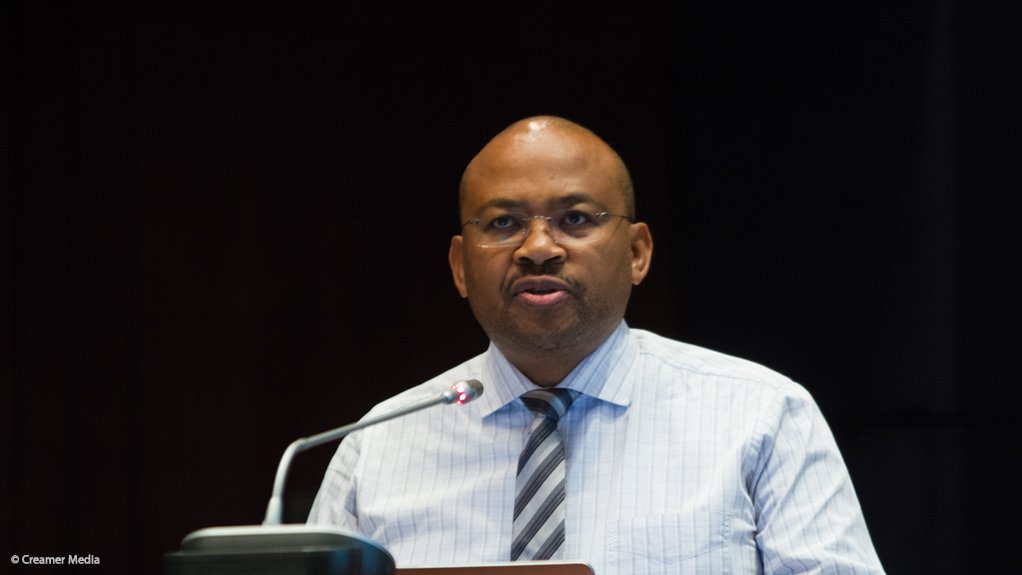South African Petroleum Industry Association (Sapia) chairperson Maurice Radebe has appealed for “decisive action” to resolve the prevailing policy uncertainty on cleaner fuels and how the $4.9-billion cost of upgrading the country’s existing refineries to produce such fuels will be recovered.
Speaking at the release of Sapia’s annual report in Johannesburg, Radebe said he was “sounding a warning” that unless the long-standing impasse was resolved, the current refinery fleet would be “wiped out” in the coming five to ten years.
South Africa has six refineries with a combined capacity of 703 000 bl/d, including Sasol’s coal-to-liquids refinery in Secunda, Mpumalanga, and PetroSA’s gas-to-liquids plant in Mossel Bay, Western Cape.
In 2012, government published cleaner fuels 2 specifications for petrol and diesel and indicated that the new fuels should be introduced from July 1, 2017. The specifications are largely in line with the Euro V emission standards.
However, there has been ongoing wrangling between the liquid fuels industry and government, primarily the Department of Energy (DoE) and the National Treasury, on a suitable cost-recovery mechanism to facilitate payment for the upgrade of the fleet.
The debate has been further clouded by indications that PetroSA intended developing of a 360 000 bl/d greenfield refinery at Coega, in the Eastern Cape. The project has failed to materialise, however, and PetroSA’s financial position has deteriorated markedly, with the State-owned company reporting a R14.6-billion loss in 2014/15.
The National Treasury has proposed an accelerated-depreciation model to support the upgrade, but Sapia says the incentive is insufficient to enable its refining members – BP Southern Africa, Chevron South Africa, Engen, PetroSA, Sasol Oil, Shell South Africa and Total South Africa – to earn acceptable returns.
Sapia is in favour of using the fuel levy to recover the costs, noting that the investments will also need to be staggered so as to ensure that there are no supply interruptions, which makes the three-year accelerated-depreciation framework inappropriate.
Radebe warned that the existing refineries – which included the crude refineries of Enref and Sapref, in Durban, Chevref, in Cape Town, and Natref, in Sasolburg, as well as the synthetic-fuel refineries in Secunda and Mossel Bay – were facing an existential crisis similar to those experienced by South Africa’s clothing and textile and steel industries in the recent decades.
“I’m sounding a warning now that if we do not support this industry in five, ten years, at most, it will be wiped out,” Radebe, who is also executive VP of Sasol’s energy business, cautioned.
The refineries, he added, not only provided transport fuels but also liquid petroleum gas (LPG), bitumen and a range of inputs for downstream chemicals and plastics manufacturers.
STATE OF COMPLETE UNCERTAINTY
“We need to take real, decisive action,” Radebe said, arguing that the industry was in a “state of complete uncertainty”, which was not conducive to investment.
DoE deputy director-general for petroleum and petroleum products regulations Tseliso Maqubela acknowledged the industry’s frustration, but said that pronouncements would be made before the end of 2016 that should help address the current uncertainty.
He said that Energy Minister Tina Joemat-Pettersson would soon release the Integrated Energy Plan that would provide a basis for finalising a road map for the liquid fuels sector.
The DoE was considering various options to improve the investment climate, including possible deregulation in the LPG sector, as well as possible deregulation of certain fuels, such as 93 octane petrol, which South African refineries were geared to produce, but which motorists were eschewing in favour of 95 octane product.
Wood Mackenzie VP for refining, chemicals and oils markets Alan Gelder warned that, in the absence of new investment, South Africa’s refineries would come under pressure from the large export refineries.
Gelder said South African refineries were still operating at capacity utilisation rates of around 70%, but there was an ever increasing reliance on imports, particularly for cleaner fuels.
“South African refineries were more profitable in 2015 than 2014, but . . . without significant investment they will get structurally weaker within the global context. But investment needs regulatory certainty,” he added.
EMAIL THIS ARTICLE SAVE THIS ARTICLE
To subscribe email subscriptions@creamermedia.co.za or click here
To advertise email advertising@creamermedia.co.za or click here











